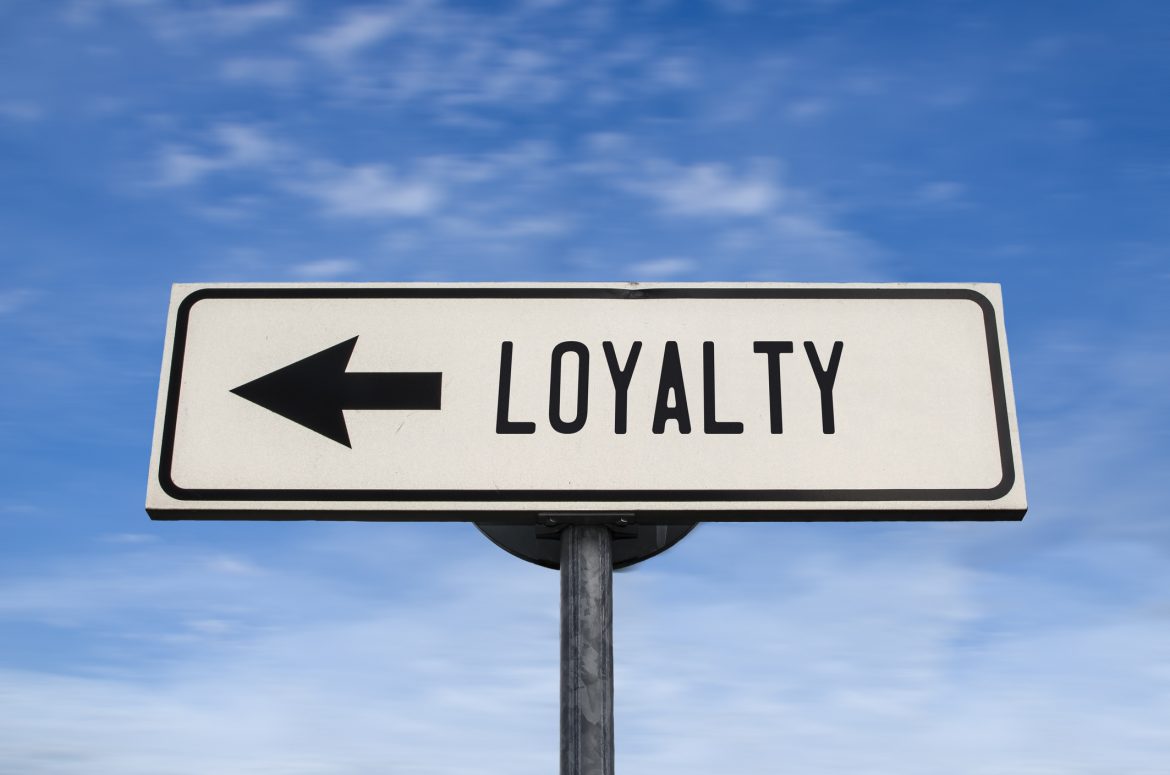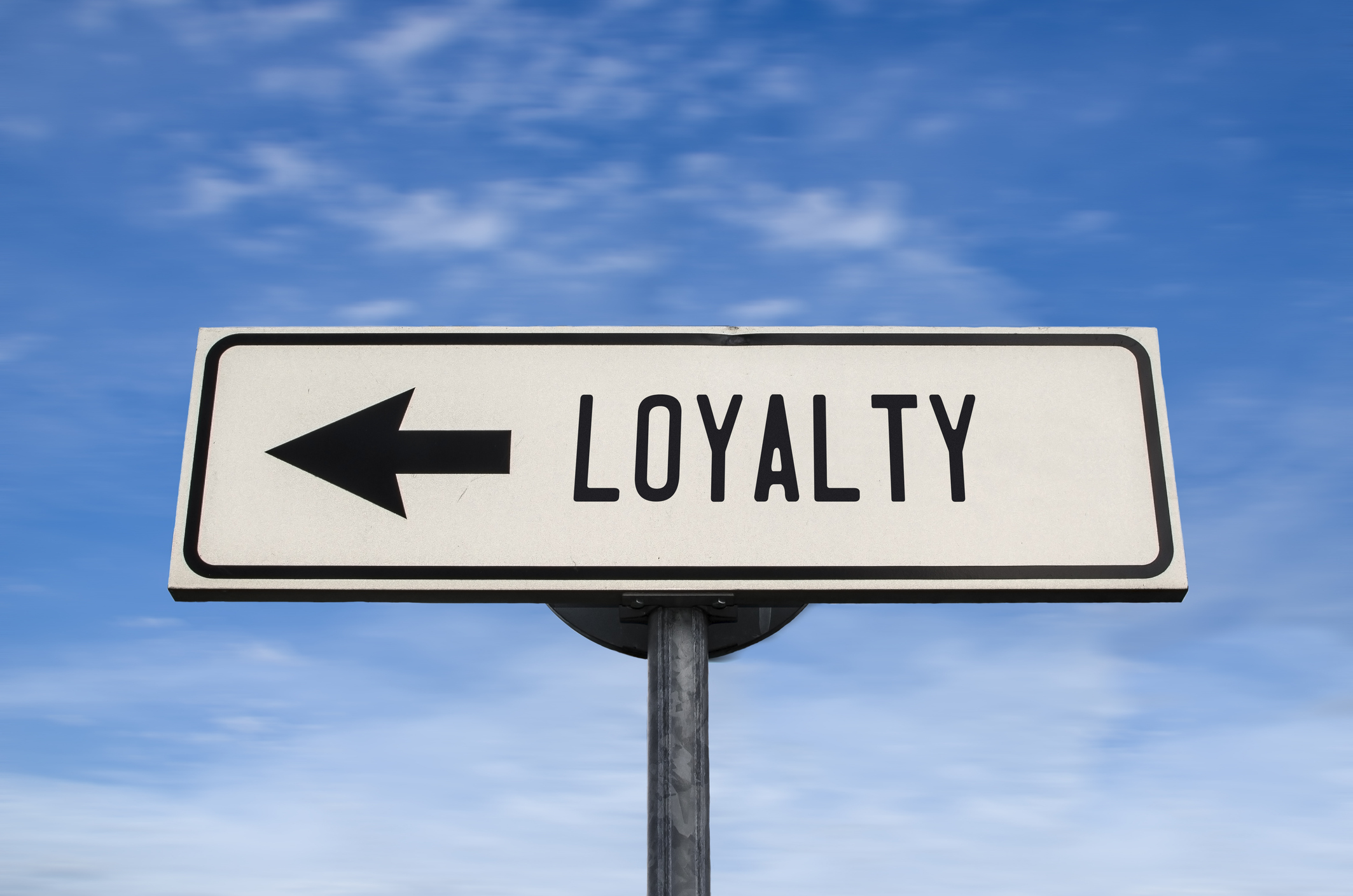
Loyalty in the mafia means something different than loyalty in its most productive and meaningful ways, or does it? Is blind obedience really loyalty? Ray Zinn explores the finer points and graces or loyalty.
Rob Artigo: Rob Artigo here once again, your host for this edition of the “Tough Things First” podcast. I’m an entrepreneur in California, wonderful to be… Let me try that again. Three, two, one.
Rob Artigo here once again, your host for this edition of “The Tough Things First” podcast. I’m an entrepreneur in California. Wonderful to be back again with you, Ray.
Ray Zinn: Hey, it’s good to be with you, Rob. Thanks for joining me today.
Rob Artigo: Of course Ray’s the longest-serving CEO in Silicon Valley history, ran my Micrel for more than 37 years.
So Ray, you say loyalty is one of the most important human attributes. I was thinking about loyalty, and this is how I framed it was, loyalty in the mafia means something very different than the loyalty we expect in our lives with our families and our places that we work, because those are the more productive and meaningful ways to have loyalty. Blind obedience really is not loyalty anyway. So a healthy loyalty benefits pretty much everybody. You say-
Ray Zinn: So, Rob-
Ray Zinn: So, going back to your comment about loyalty is not the same thing with the mafia. So once you hit on that, why you think that loyalty is not the same as it is in the mafia.
Rob Artigo: Well, what I mean is that if I’m just being obedient, that’s not loyalty.
Ray Zinn: Well, it’s part of loyalty, though.
Rob Artigo: Yeah, but there’s an expectation that you’re cooperating and willing to do what the other person expects of you. But I think that loyalty, if I tell you that you’re going to do something or I’m going to hurt you, it’s really more of coercion than loyalty. Does that make sense?
Ray Zinn: Sounds like a gang-type thing.
Rob Artigo: Yeah, that’s what I mean. In the mafia, you expect that somebody might… Like the boss tells you to do something, and you either don’t do it or you fail to do it right, you could be sleeping with the fishes, as they say, with cement shoes.
Ray Zinn: So, let’s talk about then why loyalty is one of the most important attributes that a human can have-
Rob Artigo: Okay, why don’t we start with that.
Ray Zinn: … because it might flow into why you think that there’s no honor among-
Rob Artigo: Well, I have a list of seven bullet points that you had written about, and we’ll go through those, but let’s start with your explanation here.
Ray Zinn: Okay, so we’re talking about what the loyalty is the best, strongest attribute we can have. Is that what you’re referring to?
Rob Artigo: Yeah, I think that’s what you were leading into.
Ray Zinn: When you think of a relationship with another person and you want to build that relationship, that’s where loyalty comes in, because you’re honorable. Other words, you’re trustworthy. You have integrity. You show dignity. You’re not negative. You’re positive in how you want to develop that relationship. You’re a good listener. You’re joyful. You’re happy when you’re around them. You’re willing to be supportive, and if they have a problem, you’re going to jump in and help them.
And so that’s what I mean by if we look at loyalty. While loyalty implies obedience, it’s obedience in that relationship, whether it be marriage, whether it be a family, whether it be your school or your vocation, whatever it is, you’re going to be obedient to the requirements of that vocation, following the rules as you would, whether you’re an engineer, whether you’re a doctor, whether you’re a lawyer, whether you’re a husband, or whatever it is you’re doing. You want to make sure you comply with the agreement or the rules as you would associated with that relationship.
Rob Artigo: Well, let’s take a look at this list that you put together here, which I think is all meaningful points. And this is really all related to the concept of demonstrating that loyalty, which you were mentioning there.
Number one says you’re just simply being dependable.
Ray Zinn: Yeah. What employee that’s not to work on time or dependable at their job would be considered loyal. That’s the key to being dependable is that you can rely on me. You can depend on me. I’m valuable. I’m resourceful, as you would. I’m there for you. That’s being dependable. You’re there when you’re needed.
Rob Artigo: Well, before I continue to number two, is it important to make sure that you’re demonstrating that loyalty to your employer or the other people that you are loyal to?
Ray Zinn: Absolutely. That’s the key to being dependable. If you’re not dependable, how can I be considered loyalty, whether it be military duty, or whether it be in some other political arena where you’re not being dependable in the way you vote or the way you resource your particular job.
Rob Artigo: All right, so number two here is being supportive no matter what the issue is.
Ray Zinn: Absolutely. If you’re not supportive, let’s say you’re an employee, as you would, if you’re not supportive of the company and its mission, you shouldn’t be working there. And the same thing if you’re the CEO or the boss and you’re not supportive of your employee, they’re going to know that and they’re going to leave you. They’re going to go off in some other vocation.
So it’s extremely important to be supportive with your political party. If you’re not supporting your views, then you’re just not going to be a very loyal political leader.
Rob Artigo: And if you’re representing a company that has products that are for sale, and when you’re out talking to other people, you tell people, “Oh, I prefer the widget from Sony Corporation,” or something like that. And it’s not the widget you sell, it’s a different company that does it.
And you’re like, “Well, yeah, I just think it’s a better product.” That’s not being supportive is, you’re trash talking, basically, your own product, and that’s not going to help things out. So if you’re not supporting the product, then you’re not being supportive.
Ray Zinn: Right, exactly.
Rob Artigo: All right, number three, being kind and compassionate. That’s something that was part of the culture of Micrel for 37 years when you were running the company. And it seems like very much common sense to be part of this list is being kind and compassionate.
Ray Zinn: No, I can’t think of any other two attributes that would be more associated with loyalty than being kind and compassionate. In a marriage relationship, if you’re not kind and compassionate with your spouse, how’s that being loyal? Or if you’re an employee and you’re not showing kindness and compassion towards your fellow worker or towards your company, then understanding, and dependable, all these things wrapped up into kindness and compassion, then what kind of person are you?
Rob Artigo: And being a good listener is number four.
Ray Zinn: Yes. Again, what kind of a supportive spouse or worker would you be if you’re not a good listener? If you don’t listen well, remember, we have two ears and one mouth for a reason, and we need to use in proportionally, meaning you should be listening more than you’re talking. And so listening is extremely important, because you’re not going to understand the other person’s point of view if you’re not listening, if you’re trying to talk over them.
And we see that a lot in politics. They don’t listen to each other. They really don’t. They just try to talk over each other. And that’s a discouraging thing. No matter what political party you’re affiliated with, they don’t listen very well. They all try to talk over each other.
Rob Artigo: Yeah, just listen to one of these congressional house hearings or something like that. You know that the politicians are not listening to what the people that are testifying are saying. When it’s time for them to ask questions, all they do is make a statement.
Number five, going the extra mile.
Ray Zinn: That’s kind of a biblical saying is to go the extra mile, because that does show loyalty, willing to do whatever it takes, no excuses, as we talk about in our book, “Tough Things First”. Just doing whatever is minimal, just doing the minimum amount, doesn’t speak to your loyalty, doesn’t speak to your willingness to really do whatever it takes to make this adventure a success, whether it be a marriage, or whether it be an education, or work situation. If you’re not willing to go the extra mile, work the extra minutes in the day, or put in the extra time and energy, that doesn’t speak well to your loyalty.
Rob Artigo: And number six, being respectful, not judgmental.
Ray Zinn: That’s something we talked about in one of our podcasts about differentiate, don’t discriminate. Being respectful is extremely important in a relationship. I tell my wife every day, maybe five or 10 times a day, how much I appreciate, how much I love her and appreciate what she does for us and the family. And so I express that readily.
And so at your work, whether you’re a doctor, a nurse, or whatever, your lawyer, express appreciation to those that you’re working with, your client. If you’re a lawyer, express appreciation. Tell how much I appreciate you as a client or vice versa. If you’re a client, tell how much you appreciate the legal advice you’re getting, or whoever’s taking care of your house, whether they’re mowing your lawn, or whether they’re planting your flowers, or cleaning your house, whatever, express appreciation to them. Tell them how much you really appreciate what they’re doing.
So expressing appreciation is so key to developing a lawyer relationship, and we need more of that. We don’t express appreciation enough.
Rob Artigo: Well, the final one on this list here, I think I might’ve transcribed it incorrectly, because it says, “judging others”. I think the idea is really not to be judgmental of others.
Ray Zinn: Well, again, it goes with being respectful. Differentiate, but don’t discriminate. Finding out why your spouse didn’t cook the best meal that you were expecting and being respectful. In other words, there was a reason why that happened that way, or why your boss yelled at you, or why you yelled at your boss, or whatever the issue may be is, try to be understanding and not jump to conclusions.
And we’ve heard that jumping to conclusions can kill you. And so don’t make off-the-cuff statements until you walk, as they say the Indians, walk two miles in their shoes, as you would or whatever, two weeks or whatever. And so don’t be quick to judge. Be slow, slow to judge.
Rob Artigo: As always, you can reach out to Ray Zinn with your questions at toughthingsfirst.com. Continue your education and the conversation with all the podcasts, blogs, and links to information about Ray’s books, “Tough Things First”, “The Zen of Zinn” I, II, and III. And, of course, we have another book coming up that is the “Essential Leadership”. And I think everyone’s going to enjoy that, Ray.
Ray Zinn: Thank you.


